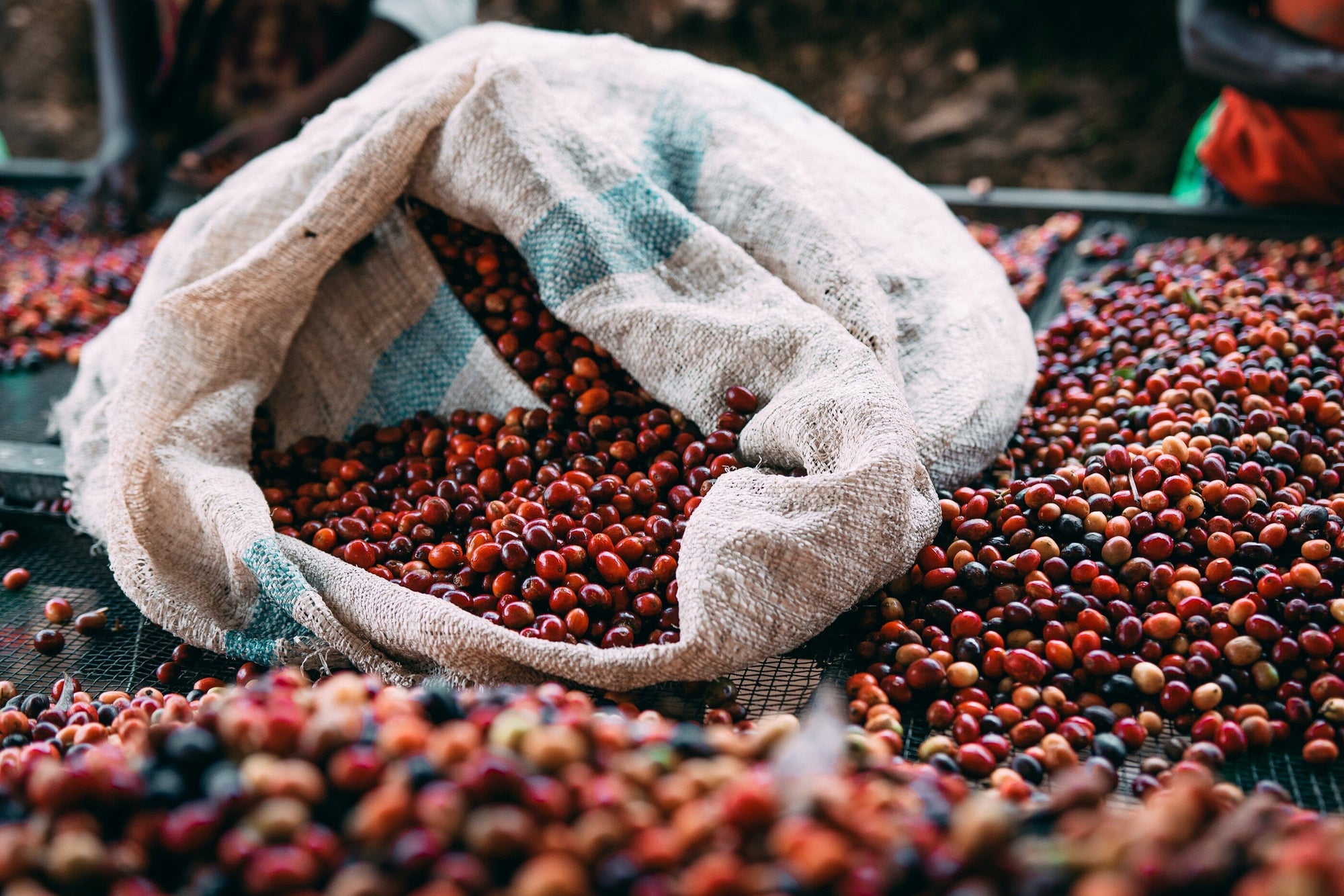

Shyira Washing Station and Vunga Cooperative
Today, we hit the road nice and early, bound for the North Western part of Rwanda, specifically near a town called Ruhengeri. This region is most famous for Mountain Gorillas, and sees a decent amount of tourism through this.
When we arrived in Ruhingeri, we took a left turn and headed further west, rather than toward the gorillas. This road was one of the first truly flat roads we've encountered in our few days here in Rwanda. Although covered in potholes, it was a nice experience.
Not many people take this path other than locals. As we drove, children ran beside the car, waving, smiling and yelling 'mzungu' which essentially translates to white people - or so we've been told. It was an entertaining drive.
The purpose of the trip was to see Shyira Washing Station and get a better understanding of the practices they're doing and how that is affecting the quality of the coffee. We were super impressed all around. Before we actually stepped foot on the washing station, we were assigned the task of picking coffee cherries. It was a nice lesson, harvesting a handful of trees with a few of the local farmers. It gave us a better sense of the difficulty and concentration it requires to produce high quality coffee. Believe it or not, in the double digit number of times we've visited producing countries, we've never been assigned the task of picking coffee.
Once finished, we brought our harvest to Shyira to begin sorting out any of the cherries that didn't belong. At this stage, we easily lost 25% of our harvest by sorting out any cherries which weren't a perfect colour of red. Whoops, it looks like we need to work on our selection skills for next time. A nice demonstration again of difficulty and necessity for detail.
From there, we floated our cherries (to sort out any lighter or less dense coffees) to the surface of a bath of water. This again saw a significant percentage disappear, but is a crucial step in processing high quality coffee for consistency. From here, the coffee was pulped, left for fermentation, and then sorted one more time afterward, as parchment further ensures the consistency and quality.
Lastly, we toured drying beds and had the opportunity to see the different tiers of grading. Pretty cool. These guys, MTCo, have established grading systems within the already established systems set by the government. There are fascinating quality control measurements being put in place here.
After our goodbyes, we proceeded to the Vunga Cooperative. Although we stayed a much shorter amount of time here, we were pretty impressed, overall. Similar in cleanliness, organization and comparable quality, this is a cooperative with nearly 300 small holder producers contributing their cherries.
At both of these stops, we were welcomed with song and dance - something that's new to us. We have some videos we'll have to share.
Tomorrow, we're off to Nyamasheke. It looks like it should be another educational and eye opening trip for us.

Aerial view of Shyira Coffee Washing Station.

The beginning of the floating stages. This is a quality control measurement to remove less dense coffee cherries.

The children of Rwanda are filled with smiles and love to yell 'Mzungu.'

Vunga Cooperative. A small collective of 276 farmers.










